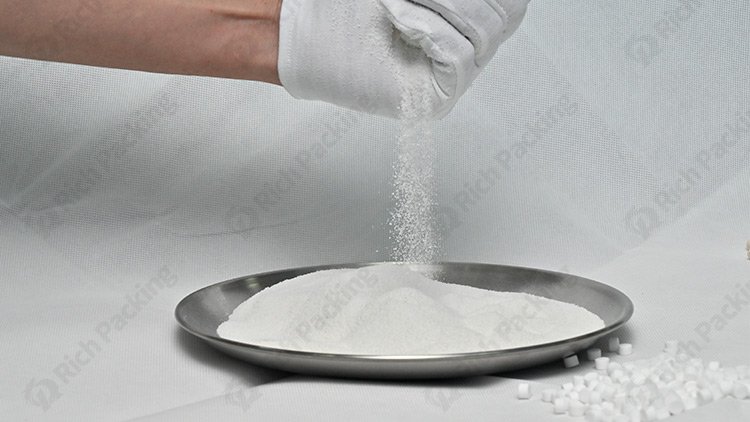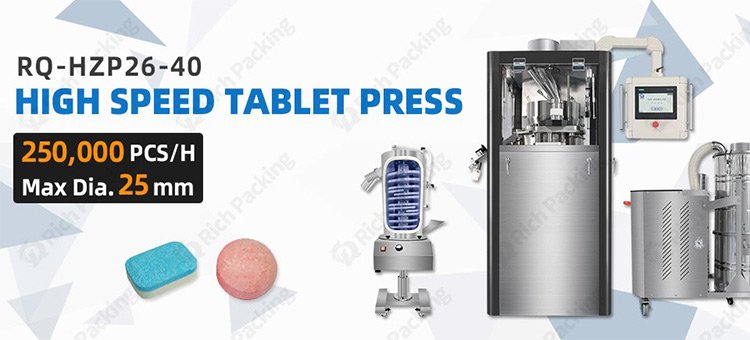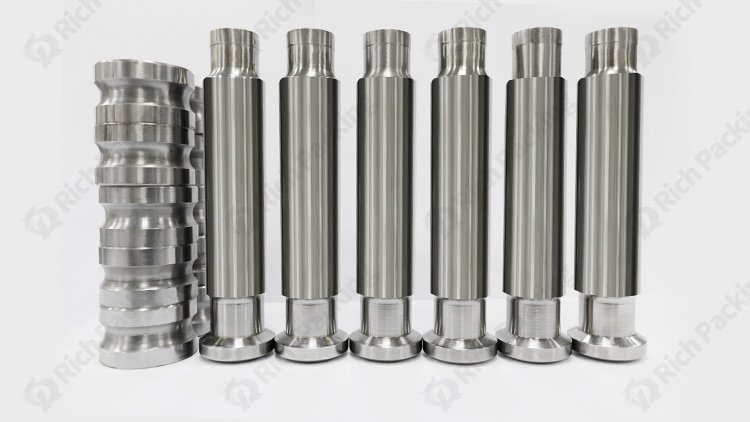Categories
New Blog
Tags
In the pharmaceutical industry, the rotary tablet press machine plays a crucial role in producing high-quality tablets. As you delve into the world of tablet manufacturing, it's essential to understand the various factors that can impact the quality of tablets produced by these sophisticated machines. Let's explore the key elements that influence tablet quality and how you can optimize your tablet production process.
The journey to producing high-quality tablets begins with the raw materials. The physical and chemical properties of the ingredients significantly affect the final product. You should consider the following aspects:
Particle Size and Distribution: The size of the powder particles and their distribution can impact how well the material flows and compresses. Uniform particle size often leads to better flow and more consistent tablet weight.
Moisture Content: The amount of moisture in your raw materials can affect their ability to bind together during compression. Too much moisture may cause sticking issues, while too little can result in tablets that are too friable.
Compressibility: Different materials have varying abilities to form cohesive compacts under pressure. Understanding the compressibility of your formulation helps in determining the right compression force.

The way you design your tablet formulation can significantly impact the final product quality. Consider these factors:
Excipient Selection: Choosing the right combination of excipients (inactive ingredients) can improve flow properties, enhance compressibility, and ensure proper disintegration of the tablet.
Active Ingredient Concentration: The amount of active pharmaceutical ingredient (API) in your formulation can affect how well the tablet holds together and releases the medication.
Lubricant Level: While lubricants are necessary to prevent sticking, using too much can negatively impact tablet hardness and dissolution rates.

The settings on your rotary tablet press machine play a vital role in determining tablet quality. Pay attention to these key parameters:
Compression Force: The amount of force applied during the compression stage affects tablet hardness, friability, and dissolution rates. You need to find the optimal force that produces tablets meeting your quality standards.
Turret Speed: The speed at which the turret rotates impacts dwell time (how long the powder is under compression). Elevated turret speeds, while seemingly advantageous for boosting production throughput, must be delicately balanced against the potential pitfalls of compromised tablet quality. Improper optimization can lead to inconsistencies in tablet hardness, weight variation, and even cracking or friability. Thus, fine-tuning this parameter in harmony with other variables is paramount.
Pre-compression Force: Applying a pre-compression force can help remove air from the powder and improve tablet density and strength.
Fill Depth: The amount of powder that fills the die cavity directly affects tablet weight. Consistent fill depth is crucial for weight uniformity.

The conditions in your manufacturing environment can also impact tablet quality:
Temperature and Humidity: Temperature and humidity in the production area play a crucial role in tablet manufacturing. These environmental factors can significantly influence powder behavior, affecting flowability, moisture content, and compressibility. High humidity may cause powder clumping and impair flow, while temperature fluctuations can impact active ingredient stability. To ensure consistent, high-quality tablet production, it's essential to maintain a strictly controlled environment. This involves implementing precise monitoring systems and responsive adjustment mechanisms to keep these variables within optimal ranges. By doing so, you can minimize the risk of quality issues and maintain the integrity of your tablet manufacturing process.
Vibration: Excessive vibration in the manufacturing area can lead to inconsistent die filling and weight variation in tablets.
Dust Levels: High levels of airborne particles can contaminate your product and interfere with the proper functioning of the tablet press.
The condition of your tablet press tooling is critical for producing high-quality tablets:
Punch and Die Condition: Worn or damaged punches and dies can lead to issues like capping, lamination, or sticking. Regular inspection and maintenance of tooling are essential.
Alignment: Proper alignment of punches and dies ensures even distribution of compression force and prevents tablet defects.
Cleanliness: Keeping your tooling clean prevents cross-contamination and ensures smooth operation of the press.

Implementing robust process controls helps maintain consistent tablet quality:
In-process Testing: Regular checks on tablet weight, hardness, and thickness during production allow for timely adjustments to press parameters.
Statistical Process Control: Utilizing statistical tools to monitor and control variability in your tablet production process can help identify and address issues before they lead to quality problems.
Operator Training: Well-trained operators who understand the intricacies of the tablet press and the impact of various settings on tablet quality are crucial for maintaining high standards.
The way your powder flows through the tablet press can significantly affect tablet quality:
Hopper Design: The design of your feed hopper can impact how consistently powder flows into the die cavities. A properly designed hopper helps prevent segregation and ensures uniform die filling.
Feed Frame Settings: Optimizing the speed and configuration of the feed frame helps maintain consistent die filling and tablet weight uniformity.
Powder Bridging: Some formulations may be prone to bridging or rat-holing in the hopper, leading to inconsistent powder flow. Addressing these issues through formulation adjustments or hopper design modifications is crucial.
As you can see, numerous factors influence the quality of tablets produced by a tablet press. By carefully considering and optimizing each of these elements, you can significantly improve the consistency and quality of your tablet production process. Remember, the journey to high-quality tablets begins long before the powder enters the pill tablet press machine and continues through every stage of the manufacturing process.
In conclusion, producing high-quality tablets requires a holistic approach that considers everything from raw material properties to environmental conditions. By understanding and controlling these various factors, you can harness the full potential of your rotary tablet press machine to consistently produce tablets that meet the highest quality standards. Whether you're new to tablet manufacturing or looking to optimize your existing processes, paying attention to these key factors will help you achieve better results and maintain the quality your customers expect.